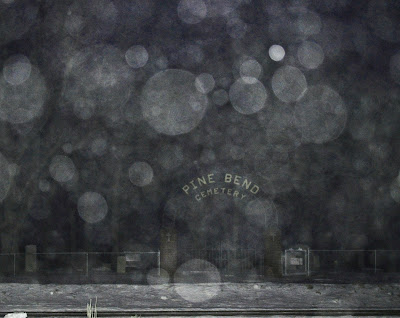Tell me, Meers, does time go backwards or forwards? Does today get folded into tomorrow or swept away with yesterday?
I sense, Bobagorus, that it goes out and something else comes in.
Goes out like a candle? Or a patron exiting a theater?
Yes, sir.
So it is, then, both extinguished and disgorged?
Extinguished, I should say, most certainly.
Time dies?
Oh, yes, time dies. I feel certain of that. Millions upon millions of small expirations every year.
But are there as well large expirations? And out and out extinctions?
Without question, Bobagorus. Time itself has shown these things to be true.
So you are saying, Meers, that time is also like a magician, or a jeweler who displays his wares?
A magician, yes, and perhaps also a bit of a jeweler.
That's all good and fine, Meers. I appreciate your answers. I am, however, going to ask you to imagine something which it is my great hope you never have to actually experience. I have reason to believe that time is, in fact, nothing less than the world's most confounding cinema. At all times in this cinema films are being projected on both the front and back walls, and on the side walls, on the floor and ceiling, and in every nook and cranny; different films projected at different speeds. One simply cannot hope to take it all in, and even more impossible is the fact that each of these films is composed of millions of films, one superimposed on top of another. For does not each of us have an utterly unique relationship with time? Do we not each have our own histories and dramas, each with its own pace, incidents, and cast of characters? Then, of course, there is the shared course of human history and life on this planet. There is the past. There is this moment. And there is the future. And every one of these broad concepts means something different --and many different things-- to each of us. In effect, then, what you have is a sprawling cosmic cinema that is constantly and simultaneously screening quiet dramas, great tragedies, news reels, crime sagas, comedies, love stories, documentaries, action adventures, and science fiction.
The projectors never stop. They run at different speeds, and some of them are ceaselessly rewinding immense rolls of film. All of these projectors are time machines, and the images on those screens represent memories and dreams and the most wretched nightmares, the horizons of the past and the future, with the one-way Autobahn of the present straddling or connecting them. We all live in this theater; it's a version of the world, but the only people who can see, or are aware of, what's transpiring on all of the screens are a special class of ingrates and squanderers.
Nobody truly wants to see or know what's happening on all of the screens. To be able to view all the layers is of course a curse. I've been provided with brief glimpses of individual screens and layers, and there is nightmare enough in that experience; to live in the layers, with the fast forward and rewind and infinite transpositions, would be torturous. I have been told that there are literally countless brief sections of these films that are more than any sane human could bear --broken dreams, embarrassing and regrettable moments, grief, atrocity, myriad surrendered futures and bland compromises, rash words, hurtful actions, unspeakable cruelty, heartbreak and hope, birth, death, suffering, unbearable tenderness and innocence, shattered illusions.
The people who can see all the layers and who cannot escape the theater --they live with the projections wherever they are-- are doomed. They spend their lives queasy and cursing their fate. There is a special loop of their own suffering, recurring episodes from their cursed lives, so they cannot even escape that misery. They are trapped not just in the history of the world or personal memory, but in the history of human consciousness and dreams. One can certainly understand how crippling this must be; these poor wretches are pure spectators, ceaselessly tormented and utterly unable to act. They are paralyzed, as it were, in a theater seat that is revolving 360 degrees --sometimes very, very slowly; at other times with wrenching speed-- just as is the theater in which they are captive; just to make things even more insufferable, the seats and the theater itself spin in opposite directions.
Many of these spectators live in a state of perpetual nausea that has characteristics of both vertigo and sea-sickness. There are, as you might imagine, instances where people gouge out their eyes, and few are able to endure long sentences as spectators in this cinema. There are, however, rare cases --mostly failed screenwriters and novelists-- who actually seem to enjoy the experience.
1 hour ago













